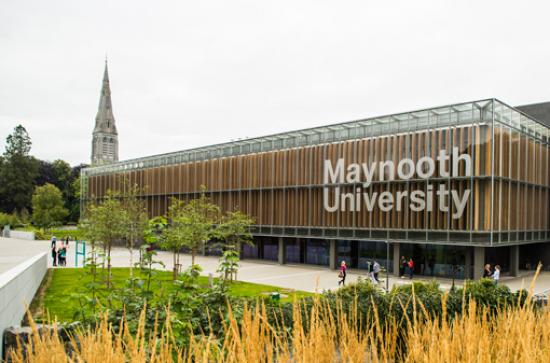Microsoft Ireland and Maynooth University have announced a new programme to address digital inequality in education and increase the number of girls entering science, technology, engineering, and maths (STEM) courses.
The Digital Wealth project is a school outreach programme which will support 1,000 students in 45 schools nationwide that currently have restricted access to technology and digital proficiency. Skills like coding and computational design will be introduced to the classroom.
The collaboration is the first of its kind and aims to strengthen the country’s digital leadership.
The World Economic Forum estimates that 90 per cent of all jobs in 2030 will require digital skills.
The STEM Passport for Inclusion project will also be rolled out as part of the collaboration. It will support 1,000 girls between fourth and sixth year from disadvantaged communities to enter STEM courses and pursue a career in the digital economy.
This project was developed in response to the lack of girls from disadvantaged backgrounds entering STEM.
Microsoft Ireland will invest over €500,000 to deliver the initiatives. An additional €450,000 was given as part of the Rethink Ireland Education Innovation Fund Awards.
The Microsoft Dream Space team will run sessions with students around artificial intelligence, design thinking and computational thinking, as well as equipping teachers with new teaching strategies focused on STEM and accessibility.
Furthermore, the team plans to deliver a STEM-based module to a group of student teachers in Maynooth University’s School of Education, training them to deliver enhanced STEM lessons while on placement in the participating Digital Wealth schools.
In a press release, Dr Katriona O’ Sullivan of Maynooth University’s Department of Psychology said: “We’ve all seen over the course of the past two years how important technology has been to enabling education to continue, despite physical schools often being closed and frequent periods of self-isolation.”
“As well as ensuring that students have the skills to fill the digital roles of the future, addressing the digital divide will also ensure that schools across Ireland have the flexibility and agility they need to adapt to future periods of possible disruption.”
The Digital Wealth project will run over three years. A needs assessment will be carried out early this year to ensure schools receive appropriate interventions in the form of skills and infrastructure.
A remote mentoring programme with women who work across the disciplines of STEM will also be offered under the STEM Passport project.
In a press release, Vice President of Microsoft Ireland James O’Connor said: “Digital Technology now plays a pivotal role in everyday teaching and learning, however, many school communities continue to lack the skills, infrastructure, and support to realise all the benefits.”
He added: “With research showing us that girls are less likely than boys to move into STEM, the STEM Passport for Inclusion project is enabling us to place a specific focus on creating new pathways for girls in STEM so they can play active roles in building tomorrow’s world.”







